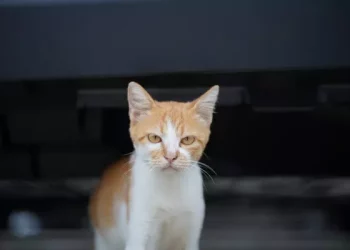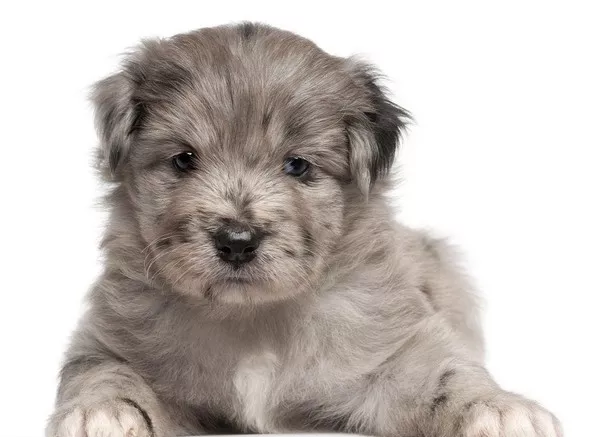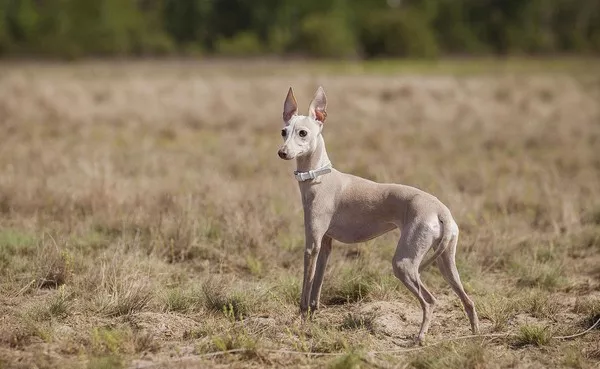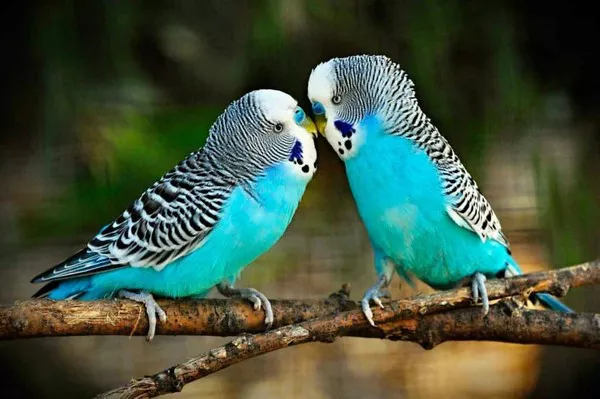American Shorthair cats are known for their easygoing nature, muscular build, and friendly disposition. As one of the most popular cat breeds in the United States, they make excellent pets for families, singles, and seniors alike. Like all cats, American Shorthairs have specific dietary needs to keep them healthy and happy. As a cat owner, it’s important to understand what foods are safe for your feline friend and which ones could be harmful.
While American Shorthair cats, like all felines, are obligate carnivores—meaning their primary food source should be meat—many owners wonder if it’s safe to share human food with them. This article will explore the types of human foods that American Shorthairs can safely eat, as well as the foods that should be avoided.
Understanding Your American Shorthair’s Dietary Needs
Before diving into the specific human foods that your American Shorthair can eat, it’s essential to understand a few basic facts about their nutritional requirements:
High Protein Diet: As obligate carnivores, American Shorthairs require a high-protein diet to thrive. Meat, poultry, and fish are their primary sources of nutrients. Their bodies are designed to break down protein and fat for energy, and they have little to no ability to process plant-based food effectively.
Essential Nutrients: In addition to protein, cats need certain vitamins, minerals, and amino acids that are found in animal-based foods. These include taurine, arachidonic acid, and vitamin A—nutrients that are not present in plant-based foods.
Hydration: Cats naturally have a low thirst drive, so it’s crucial to provide them with both dry and wet food options to ensure they stay hydrated.
Given these dietary needs, any human food given to your American Shorthair should complement, not replace, their regular balanced cat food.
Foods That Are Safe for American Shorthairs
Though cats shouldn’t be fed a human diet exclusively, there are several human foods that are safe for them to eat in moderation. Here are some of the foods that can be a healthy treat for your American Shorthair.
1. Cooked Meat (Chicken, Turkey, Beef, and Pork)
American Shorthairs can enjoy cooked meat as a protein source. As obligate carnivores, they require meat to thrive. When offering cooked meat, be sure to follow these guidelines:
No bones: Always remove any bones from the meat. Cooked bones can splinter and cause choking or damage to the digestive tract.
No seasoning: Avoid seasoning the meat with salt, garlic, onions, or other spices that are toxic to cats.
Cooked only: Raw meat can carry bacteria like Salmonella or E. coli, which can make your cat sick. Cook meat thoroughly before offering it to your cat.
Some good options include grilled chicken breast, boiled turkey, or lean cuts of beef. As long as the meat is cooked plain and free from any toxic additives, it can be a great source of protein.
2. Fish (Cooked)
Fish is another treat that many cats enjoy. However, it’s important to be cautious:
No raw fish: Just like with meat, raw fish can carry harmful bacteria and parasites.
No bones: Fish bones can easily get stuck in a cat’s throat or digestive tract, so always remove them.
Moderation: Fish should be given in moderation because it contains high levels of phosphorus, which could interfere with calcium absorption if overfed.
Safe fish options for American Shorthairs include cooked salmon, tuna, and sardines. Avoid giving them fish prepared with oil or heavy seasonings.
3. Cooked Eggs
Eggs are a good source of protein, amino acids, and other nutrients. American Shorthairs can eat cooked eggs, but they should never be fed raw eggs due to the risk of foodborne illnesses (like Salmonella).
Boiled or scrambled eggs: Offer eggs without any butter, oil, or seasoning. Cats can enjoy small pieces of hard-boiled eggs or scrambled eggs, as long as they are cooked thoroughly.
Eggs are an excellent way to provide a healthy treat, but they should not replace a balanced diet, as cats still need meat-based proteins.
4. Plain Pumpkin
Pumpkin is safe for American Shorthairs and can even be beneficial for their digestion. It’s high in fiber and can help regulate their bowel movements. It can also be helpful if your cat suffers from constipation or mild digestive issues.
Plain canned pumpkin: If you give your American Shorthair pumpkin, make sure it’s plain and doesn’t contain added sugars or spices like cinnamon.
Fresh pumpkin: You can also cook fresh pumpkin and serve it in small portions.
Pumpkin is a great addition to your cat’s diet as a fiber-rich treat, but it should always be given in moderation to avoid any digestive upset.
5. Cheese (In Small Amounts)
While not a natural part of a cat’s diet, many cats enjoy cheese as a treat. Some American Shorthairs may be lactose intolerant, so it’s essential to introduce cheese gradually to see if your cat can handle it. If your cat shows signs of digestive upset, such as diarrhea, it’s best to avoid giving them cheese.
Low-fat cheese: Offer small portions of low-fat cheese, such as cheddar or mozzarella, as an occasional treat.
Cheese is not a necessary part of your cat’s diet but can be used as an occasional snack if they tolerate it well.
6. Carrots (Cooked)
Carrots are safe for American Shorthairs as long as they are cooked. Raw carrots can be too hard for cats to chew and digest, so it’s best to cook them until soft. Carrots are low in calories and provide a source of fiber, vitamins, and minerals.
Boiled or steamed: Cook the carrots until they are soft and cut them into small pieces that your cat can easily eat.
While carrots offer some nutritional benefits, they should be offered as an occasional treat rather than a primary food source.
7. Green Beans (Cooked)
Green beans are another vegetable that American Shorthairs can eat safely. They are low in calories, making them a good option for overweight cats. Like carrots, green beans should be cooked and served in small portions.
Boiled or steamed: Cook the green beans without adding any salt or seasoning.
Green beans are a good source of fiber and can help with digestion, making them a healthy snack for your cat.
8. Rice (Plain)
In small amounts, plain rice can be beneficial for American Shorthairs, especially if they have an upset stomach. It can help bind loose stool and improve digestion. However, rice is a carbohydrate, and too much could lead to obesity, so it should only be given in moderation.
Boiled rice: Always serve rice plain without any added seasoning or spices.
Rice is not a necessary part of a cat’s diet, but it can serve as a bland food when your cat is feeling unwell or needs a temporary digestive aid.
9. Apples (In Small Pieces, Without Seeds)
American Shorthairs can enjoy small pieces of apple as a crunchy treat. Apples are low in calories and provide some fiber, vitamins, and antioxidants. However, the seeds of an apple contain cyanide, which is toxic to cats, so always remove the seeds before offering apple slices.
Peel the skin: Some cats might have trouble digesting the skin of the apple, so it’s best to peel it before serving.
Apple should be offered in small amounts and as an occasional treat.
10. Bananas (In Small Amounts)
Bananas are another fruit that is generally safe for American Shorthairs to eat. They are rich in potassium and fiber, but cats don’t need large amounts of these nutrients. Offering small pieces of banana as an occasional treat is perfectly fine.
Again, the key is moderation, as too much fruit can upset a cat’s stomach or lead to weight gain.
Foods to Avoid Feeding Your American Shorthair
While there are several human foods that American Shorthairs can eat, there are also many foods that should be avoided entirely, as they can be toxic or harmful to cats. Here’s a list of foods that you should never feed to your American Shorthair:
Onions and Garlic: Both raw and cooked onions and garlic are toxic to cats and can cause damage to their red blood cells, leading to anemia. Even small amounts can be harmful.
Chocolate: Chocolate contains theobromine and caffeine, both of which are highly toxic to cats. Even a small amount can cause vomiting, diarrhea, rapid heart rate, and seizures.
Grapes and Raisins: Grapes and raisins can cause kidney failure in cats, though the exact toxic substance is unknown. It’s best to avoid them entirely.
Alcohol: Even small amounts of alcohol can cause serious harm to your cat, including liver and brain damage. Never offer alcohol to your American Shorthair.
Caffeinated Beverages: Coffee, tea, and other caffeinated drinks are toxic to cats and can cause restlessness, rapid breathing, and heart palpitations.
Xylitol: Xylitol is a sugar substitute found in many sugar-free gum, candies, and baked goods. It is extremely toxic to cats and can cause rapid insulin release, leading to hypoglycemia (low blood sugar), seizures, and liver failure.
Raw Dough: Raw dough made with yeast can expand in a cat’s stomach, causing severe discomfort, bloating, and even life-threatening complications.
Conclusion
American Shorthair cats are generally healthy and adaptable, but their nutritional needs must be met for them to thrive. While it’s tempting to share human food with your cat, always remember that their digestive systems are not built to handle many of the foods that humans consume. Safe treats, such as cooked meat, fish, eggs, and some vegetables, can be a fun way to bond with your American Shorthair, but they should always be given in moderation.
Before adding any new food to your cat’s diet, it’s a good idea to consult with your veterinarian, especially if your cat has specific health concerns. Proper nutrition is key to a long, healthy life for your American Shorthair, so always prioritize their specialized dietary needs over the desire to share your meals.
By understanding what human foods are safe for your cat and which ones to avoid, you can ensure that your American Shorthair stays happy, healthy, and well-nourished for years to come.
Related Topics:
























